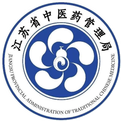Source | Yizheng City Traditional Chinese Medicine HospitalChen Xiaoning StudioZhao Xuefei Organization
Chen Xiaoning, Chief Physician at Jiangsu Provincial Hospital of Traditional Chinese Medicine.
Today’s famous doctor and formula, let’s learn about “Yi Qi Wen Yang Tong Qiao Decoction” —
Composition: Huang Qi (Astragalus) 10g, Fang Feng (Siler) 10g, Chao Bai Zhu (Fried White Atractylodes) 10g, Chao Bai Shao (Fried White Peony) 10g, Gui Zhi (Cinnamon Twig) 10g, Ma Huang (Ephedra) 6g, Cang Er Zi (Xanthium) 10g, Bai Zhi (Angelica Dahurica) 6g, Xi Xin (Asarum) 3g, Xin Yi (Magnolia Flower) 10g, Xu Chang Qing (Herba Siegesbeckiae) 10g, Cu Wu Mei (Vinegar Black Plum) 10g, Chai Hu (Bupleurum) 10g, Dang Gui (Angelica Sinensis) 10g, Gan Cao (Licorice) 3g.
Functions: Tonifies Qi, stabilizes the exterior, warms Yang, and opens the orifices.
Indications: Allergic rhinitis (Lung Qi deficiency with cold in the nasal orifices).
Dosage: 1 dose per day, decocted in 2 parts, take 400ml of the decoction, divided into morning and evening doses.
Formula Analysis: Allergic rhinitis is characterized by sudden and recurrent nasal itching, sneezing, clear nasal discharge, and nasal congestion. It falls under the TCM categories of “bi zhou” (nasal obstruction) and “jiu ti” (nasal discharge), with the disease location in the nose, which serves as a barrier for the lungs. Regarding its etiology, historical physicians have various insights. The Huang Di Nei Jing states, “When the righteous Qi is strong within, evil cannot invade” and “Wherever evil Qi gathers, the Qi must be deficient.” When evil Qi invades, if Lung Qi is abundant and the barrier is dense, it can resist the pathogenic factors. Conversely, if Lung Qi is deficient and the barrier is loose, the pathogenic factors can easily invade, especially cold pathogens that readily attack the Yang position, with the nasal orifices being the first to suffer, leading to nasal obstruction. Therefore, the fundamental treatment for allergic rhinitis is to tonify Qi, stabilize the exterior, warm Yang, and open the orifices.
In the formula, Huang Qi, Fang Feng, and Chao Bai Zhu form the Yu Ping Feng San, which has the effects of tonifying Qi, stabilizing the exterior, and stopping sweating. Gui Zhi and Bai Shao can release the exterior and harmonize the Ying and Wei. Ma Huang releases the exterior, disperses cold, opens the lungs, and alleviates wheezing; for severe nasal mucosal swelling, roasted Ma Huang is selected, while fresh Ma Huang is chosen for severe cough and wheezing. Cang Er Zi, Xin Yi, Bai Zhi, and Xi Xin can dispel wind, scatter cold, open the orifices, and relieve pain; Cang Er Zi also promotes bowel movements, Bai Zhi can reduce swelling and expel pus, and Xi Xin can warm the lungs and transform phlegm. Xu Chang Qing dispels wind and relieves itching; Cu Wu Mei is sour and astringent, which can restrain clear nasal discharge; Chai Hu raises Yang Qi and also serves as a guiding herb. Dang Gui nourishes and invigorates the blood, improving nasal mucosal ischemia. Gan Cao harmonizes the other herbs. Overall, the formula can both tonify Qi and stabilize the exterior, as well as disperse the lungs, dispel wind, open the orifices, and relieve pain, achieving a comprehensive treatment.
Clinical Modifications: If nasal itching is severe, add Xiang Ru (Elsholtzia) and Qian Cao (Rubia) for anti-allergy; if there is excessive nasal discharge, add Shan Yao (Chinese Yam), Wu Yao (Lindera) and Yi Zhi Ren (Alpinia) to stop the discharge, similar to the formula of Suo Zhen Quan; if nasal congestion is severe, remove Wu Mei and add Si Gua Luo (Luffa) to open the nasal orifices; if there is significant aversion to cold, add Dan Fu Pian (Aconite) to enhance the warming and dispersing effects of Ma Huang and Xi Xin in the formula; if the stool is dry, add Xing Ren (Apricot Kernel) to descend Lung Qi, working with Ma Huang to balance the dispersing and descending actions to restore Lung Qi’s function.
END
 Scan the QR codeFollow “Jiangsu Traditional Chinese Medicine” now
Scan the QR codeFollow “Jiangsu Traditional Chinese Medicine” now

